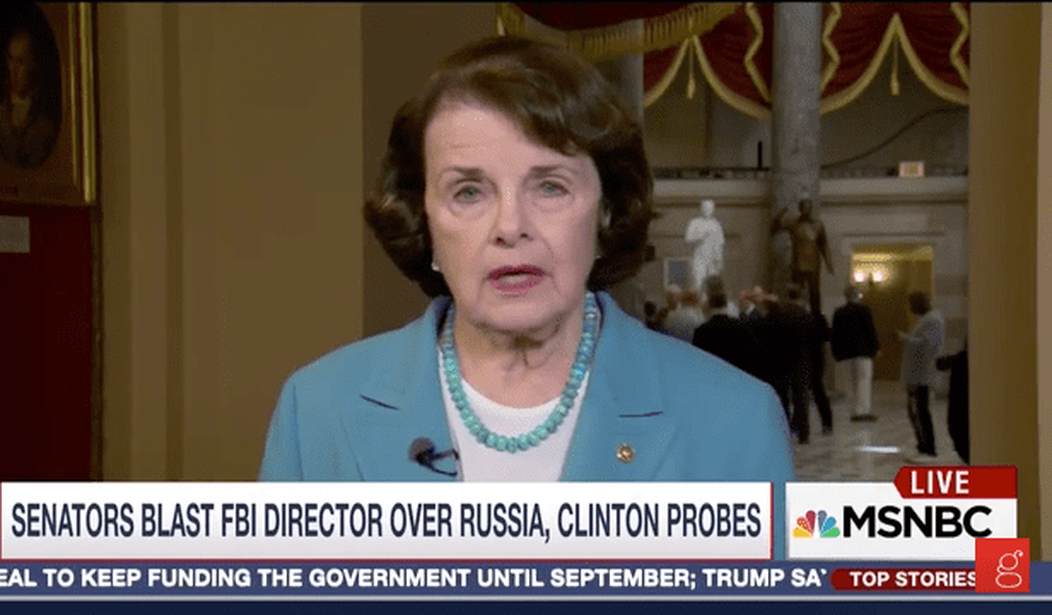WASHINGTON — Sen. Rand Paul (R-Ky.) fell short in a bid today to block the Trump administration’s mega-arms sale to Saudi Arabia.
Senators invoked the Arms Export Control Act of 1976 in the vote to disapprove the arms deal worth up to $350 billion over 10 years.
Sens. Dean Heller (R-Nev.), Todd Young (R-Ind.) and Mike Lee (R-Utah) stood with Paul, along with the majority of Democrats and both Independent senators.
Sens. Joe Donnelly (D-Ind.), Joe Manchin (D-W.Va.), Claire McCaskill (D-Mo.), Bill Nelson (D-Fla.) and Mark Warner (D-Va.) sided with the majority of Republicans in supporting the weapons sale.
“Today, a bipartisan group of senators took a stand against the escalating war Saudi Arabia is waging with Yemen,” Paul said after the vote. “This is just the beginning, and we will continue to take a stance against waging an undeclared war and fueling an arms race in the Middle East. I applaud those who voted with me to block this proposed arms sale, and I hope this sends a clear message to Saudi Arabia that the United States will not just stand by as they massacre their unarmed neighbors.”
“Despite this result, I am not going to lose interest & am not going to move on. We have a moral responsibility to help the people of Yemen,” tweeted Young.
Earlier on the Senate floor, Minority Leader Chuck Schumer (D-N.Y.) said he shared Paul’s “concerns about the Saudi military’s conduct and believe the sale of these weapons could encourage further bad behavior.”
“Second, and of equal concern to me, is that the Saudi government continues to aid and abet terrorism via its support and funding of schools that spread extremist Wahhabi propaganda. Saudi Arabia’s support for these Wahhabi madrassas goes back decades, and is responsible for much of the radicalization of Muslim youth in the Middle East and North Africa,” Schumer said. “In the past several months, we have witnessed lone wolf attacks in London, in Tehran, and elsewhere around the globe. Though the nature of terrorism has changed, many of the sources are the same. The propagation of Wahhabism — an extreme ideology — continues to fuel radicalism and terrorism around the globe. If we want to get serious about cracking down on terrorism, the United States should focus on countering the spread of Wahhabism.”
Schumer noted that the Trump administration “has not clearly articulated how the U.S. will put pressure on Saudi Arabia to end their support of Wahhabi schools, even as it claims President Trump’s recent visit to Riyadh was focused on curtailing terrorism in the Middle East.”
“Furthermore, the administration has not sufficiently ensured the Congress that these weapons won’t fall into the wrong hands,” he added.
Majority Leader Mitch McConnell (R-Ky.) argued that blocking the sale would send the wrong message to the region.
“As we know, some have raised the issue of Saudi conduct of that war, but blocking this arms sale will diminish Saudi capability to target with precision,” McConnell said of Yemen, emphasizing “part of the training provided to Saudi Arabia will be on subjects such as avoiding civilian casualties.”
Secretary of State Rex Tillerson met with Saudi Foreign Minister Adel Al-Jubeir in Washington today. Press secretary Heather Nauert said the two discussed “the regional developments, and the secretary reiterated the importance of deescalating the situation in the Gulf, and they reaffirmed that the need for constructive dialogue to resolve the dispute as quickly as possible.”








Join the conversation as a VIP Member